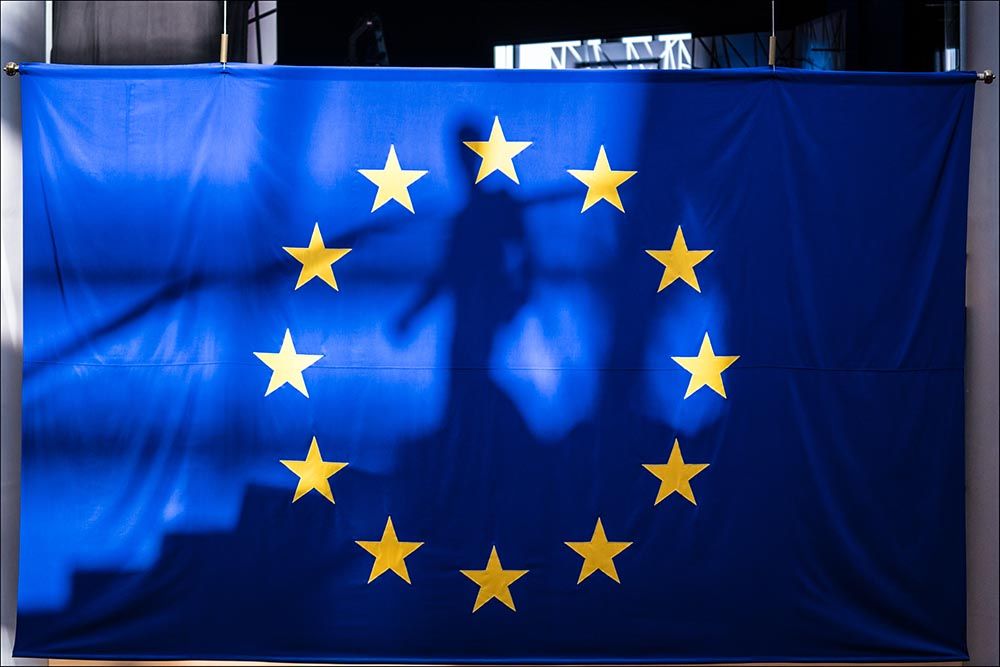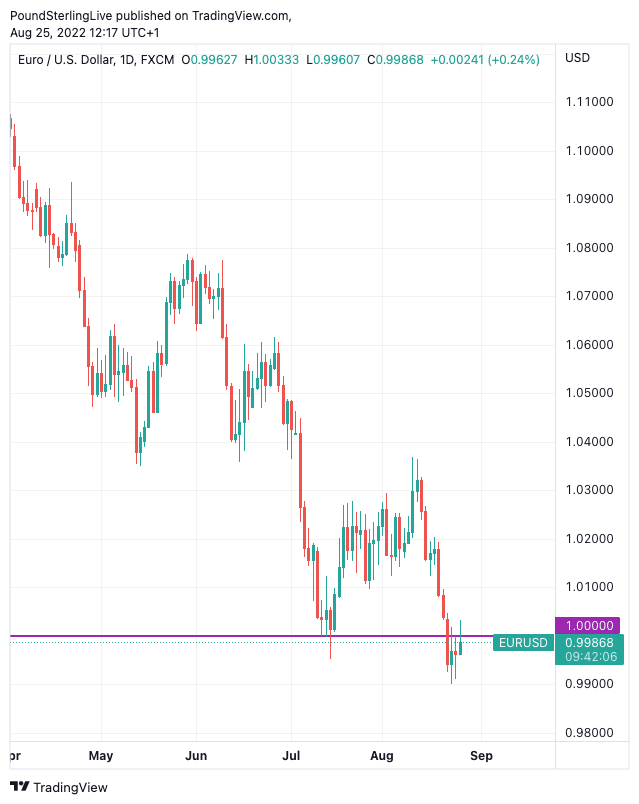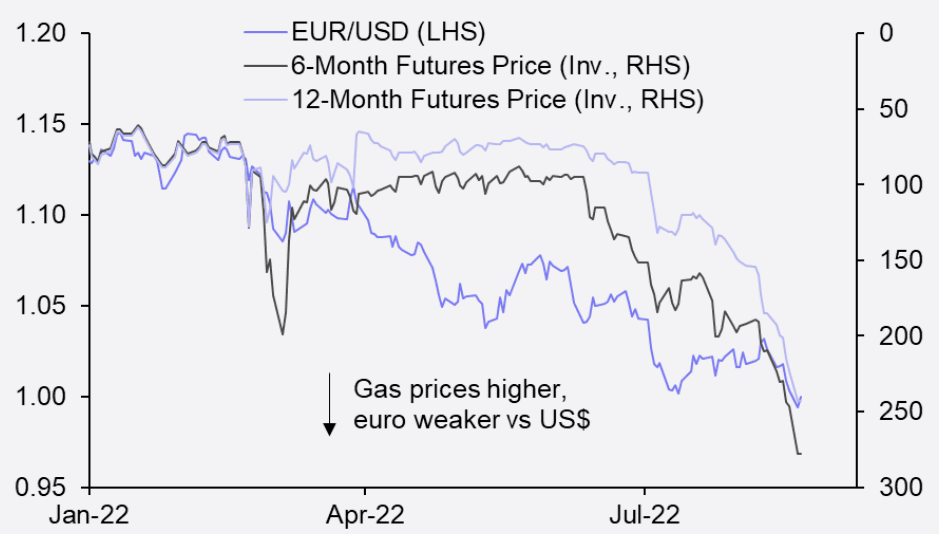Euro-Dollar Parity Could be "Par for the Course" says Capital Economics
- Written by: Gary Howes

Image © European Union - European Parliament, Reproduced Under CC Licensing.
The Euro's foray below parity against the U.S. Dollar might not be a short one, according to new analysis.
Capital Economics, an independent research provider, says in a new briefing they are now expecting a "prolonged period of euro weakness".
The call comes in the same week the Euro to Dollar exchange rate (EUR/USD) fell below 1.0 for the second time this year.
The first slip below parity in July was however met by a strong bid interest and a broader spell of weakness by the Dollar.
This meant the exchange rate was able to recovery to 1.03 by early August.
But, this time is different says Jonas Goltermann, Senior Economist in Capital Economics' global markets team.
"With the key EUR/USD rate again trading below the symbolic parity level, we think it looks increasingly probable that the euro-zone’s worsening economic woes will lead to a prolonged period of euro weakness," he says.
Above: EUR/USD at daily intervals. Set your FX rate alert here to ensure you don't miss your ideal level.
"The euro’s rebound from its mid-July trough has proven short-lived. The perception after the July FOMC meeting that the Fed is pivoting towards rate cuts gave some respite, but a string of hawkish comments from FOMC members and continued robust economic data in the US put paid to that narrative quickly," says Goltermann.
Immediate price action could well depend on the tone set by U.S. Federal Reserve chair Jerome Powell in his Friday address to the Jackson Hole conference.
Markets are currently anticipating the Fed to deliver around 65 basis points of hikes in September, meaning there is scope for Powell to pressure the market into raising their expectations to another 75bp hike.
This could offer the Dollar near-term support and keep the Euro pressured into the new month.
Compare EUR to USD Exchange Rates
Find out how much you could save on your euro to US dollar transfer
Potential saving vs high street banks:
$2,750.00
Free • No obligation • Takes 2 minutes
But, any suggestion by Powell that the Fed recognises stabilising inflation levels could hint it will be in a position to soon ease back on their hiking profile, allowing the Euro-Dollar a short-term recovery.
But for Capital Economics, it is potentially the European side of the equation that matters more for the exchange rate.
Goltermann says the news in Europe has kept getting worse and inflation has continued to come in higher than forecast, while forward-looking indicators of economic activity, such as this week's PMI surveys, point to a recession.
"The ECB's attempt at a hawkish shift fell flat and its latest forecasts (from June) already look wildly optimistic on both inflation and growth," he says.
The Eurozone's economic outlook has deteriorated markedly of late amidst surging gas and electricity prices, thanks largely to constricted flows from Russia and a frenzied bid by countries looking to fill their storage tanks ahead of winter.
"Sharp moves higher in the price of natural gas in Europe have coincided with the euro weakening against the dollar at the onset of the Russian invasion of Ukraine, and over the summer," says Goltermann.
Above: EUR/USD & Dutch TTF Futures Prices (€). Sources: Refinitiv, Capital Economics.
Capital Economics says the long-term impacts of recent developments cannot be underestimated as Europe is at risk of a permanent hit to the region's competitive position.
"Whereas earlier in the year it was mainly the price of natural gas for delivery in the coming months that shot up, over recent months the price of gas for delivery well into next year has also surged. There have already been a handful of plant closures in some energy-intensive industries, and more may well follow," says Goltermann.
Capital Economics says near-term interest rate yields are moving sharply against the Euro as investors price in the Eurozone's worsening inflation problem against a stabilising inflation situation in the U.S.
"At this point, the main – perhaps the only – argument in favour of the euro is that a lot of bad news is already discounted in the exchange rate. But given that the terms of trade shock is starting to look at least in part permanent," says Goltermann.
"We think the risks for the euro remain skewed towards the downside," he adds.
Compare EUR to USD Exchange Rates
Find out how much you could save on your euro to US dollar transfer
Potential saving vs high street banks:
$2,750.00
Free • No obligation • Takes 2 minutes






